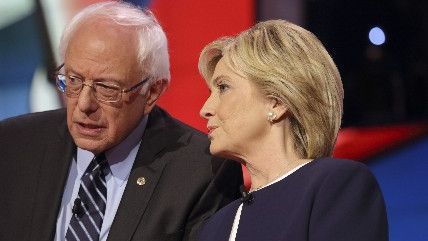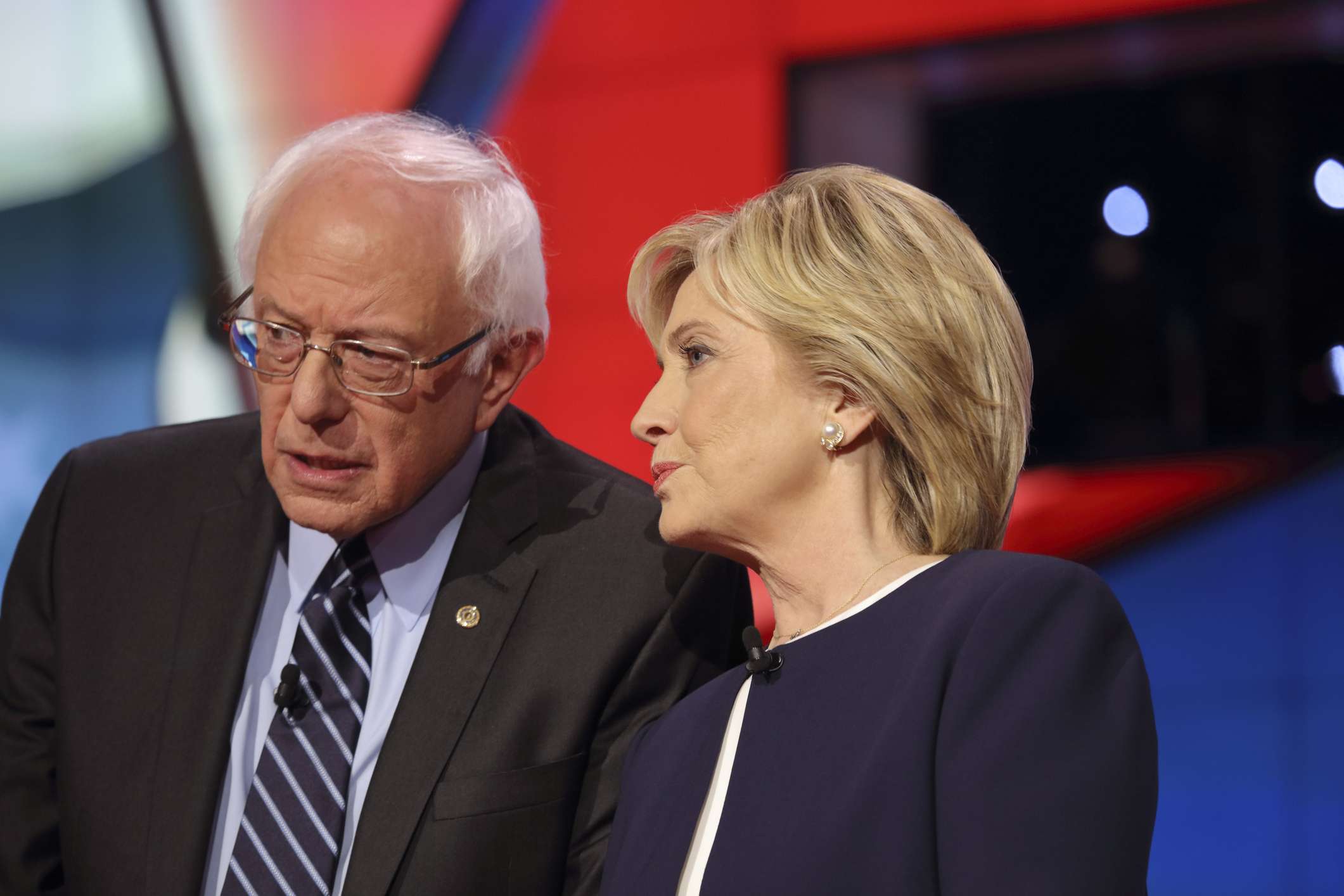Is Bernie Sanders Staying in the Race Because of Hillary Clinton's FBI Investigation?
In 2008, Hillary Clinton invoked RFK's assassination as an "anything can happen" reason for not dropping out.


Mainstream Democrats have had enough of Bernie Sanders' campaign and would like him to graciously, but expediently, fold up his democratic socialist tent and invite the more than 9 million people who voted for him to drop their #NeverHillary postures and do the right thing by Team Blue.
Recent polls show anywhere from twenty-five to forty-five percent of Sanders supporters saying they would not vote for Clinton in the general election. Sanders, for his part, has insisted he would support Clinton if she were the Democratic nominee, but asking his supporters to do the same before the end of the primary process is something he has adamantly refused to do.
With only twelve primaries to go, trailing by nearly 300 in the pledged delegate count and having received more than 3 million fewer votes than the former secretary of state, why does Sanders insist he still has a path to the nomination?
Writing in Forbes, Euel Elliot suggests Sanders might be waiting for a "black swan" moment, which at this point is the only realistic path for him to secure the nomination:
That black swan, of course, goes by the name "FBI." While an indictment of Clinton in the email controversy is highly unlikely (since any indictment by a grand jury would require approval at the highest levels of the Justice Department and the president himself), anything that tarnishes her reputation, or that suggests recklessness in an official capacity, could be politically debilitating—if not disastrous. Under those circumstances, however unlikely any of them might be, why should Sanders not hang in and wait it out? If Clinton's poll numbers really did start to go south, the Convention just might turn to Sanders. If the shoe was on the other foot, does anyone doubt that Clinton certainly would hang in there?
In the waning days of the 2008 Democratic primary process, Clinton had arguably her most notorious moment of the campaign when she said she couldn't understand why people wanted her to concede to then-Sen. Barack Obama (D-Ill.), and speculated that a black swan moment could bail out her losing campaign at any moment. To make her case, she regrettably referenced the June 1968 assassination of Sen. Robert F. Kennedy (D-N.Y.) as an example of how anything can happen before the convention.
Though she apologized for the remark, there can be no doubt that Clinton would absolutely "hang in there" until the end if she were trailing an opponent being investigated by the FBI.
For all the complaining from Clinton's camp about the "tone" of Sanders' critiques, Sanders has never made an issue out of the investigation into Clinton's use of a private email server while she was secretary of state, even pledging at an early debate to not bring up her "damn emails."
But that doesn't mean that this mess of Clinton's own making isn't something the Sanders campaign should pretend isn't there. Earlier this week, FBI Director James Comey said the Bureau's investigation will take as long as it needs to, meaning Clinton will have it hanging over her head while running for president whether Sanders is in the race or not.
Sanders also has nothing to lose by staying in the race. He clearly doesn't care if he alienates centrist Democrats in Congress — he's been a thorn in their sides for two-and-a-half decades — and has been transparent in his deliberate attempt to blow up the status quo of the Democratic Party. By staying in the race, Sanders keeps his passionate supporters mobilized and maintains the leverage he needs to continue to push Clinton to the left, demand a prime-time speaking role at the Democratic National Convention in July, and force certain parts of his agenda into the party's official platform.
Rather than worrying that Clinton can't turn her attention to Donald Trump for six months rather than the four months she would have following the convention, Democrats should be grateful that Sanders intends to reward his supporters' loyalty by honoring his commitment to stay in the race "until the last vote is cast." If Sanders were to abandon his campaign now, it is entirely possible that the white, working-class, lunch-pail populists (a subset which Reason's Jesse Walker recently reported on) numbered among his supporters could end up voting for Trump.
Though Sanders stands almost no chance of overtaking Clinton in pledged delegates, he has repeatedly noted that Clinton will be unable to clinch the nomination without the support of superdelegates — the party elites who can support whomever they choose right up until the convention.
But in the unlikely (though not impossible) event that Clinton is indicted, where else would those superdelegates go if not to Sanders?


Show Comments (136)